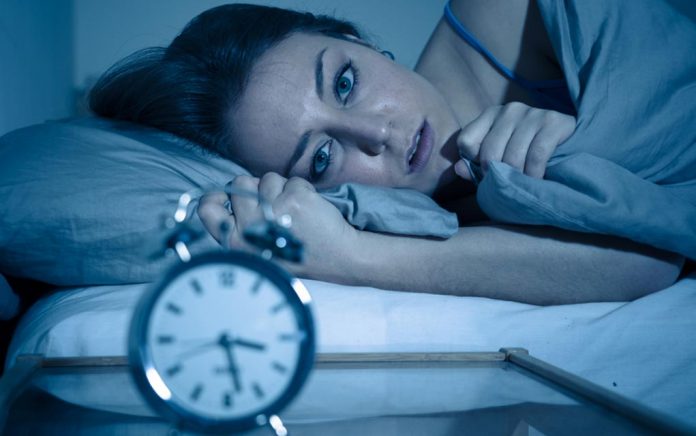
(AscendHealthy.com) – Getting good sleep is important for health, weight management, working ability, and all sorts of other things. But sleep disorders are common, often go undiagnosed and may cause problems in daily life. Understanding and treating them is the key to feeling better.
1. Sleep Apnea
Among the most common sleep disorders is sleep apnea, a condition in which a person stops breathing for short periods during the night. They may also snore loudly and frequently, and wake up feeling unwell and like they didn’t really rest. Common risk factors include having nasal or throat problems, having a deviated septum, or carrying extra body weight. Anyone who exhibits the symptoms described above or has a risk factor for this condition may want to consult with a healthcare provider. It’s likely the doctor will order a sleep study to see if sleep apnea is a problem.
There are at-home options to help reduce sleep apnea, such as weight loss if body weight is a factor. The most common treatment, however, is using a Continuous Positive Airway Pressure (CPAP) machine, which pushes air into the nose and throat while sleeping. This reduces the chance of pauses in breathing patterns and contributes to better sleep. You can also try sleeping in a different position, or surgery if there’s a medical condition causing the sleep apnea.
2. Narcolepsy
Narcolepsy is more common than most people think and may affect anyone for virtually any reason. People who have this condition fall asleep suddenly and without warning, no matter where they are. It’s generally during circumstances where falling asleep would be considered unusual, such as while eating.
A person with narcolepsy may also struggle with feeling very drowsy, sleep paralysis, hallucinations, and temporary muscle weakness that might cause a fall. Treatment for narcolepsy includes scheduled naps in an attempt to reduce falling asleep unexpectedly, as well as medication.
3. Insomnia
Insomnia, or the inability to fall or stay asleep, is a very common problem. Most people will have at least one bout of short-term insomnia in their lives, which usually resolves without the need to do anything. Over-the-counter sleep aids and a change in diet or schedule — or stress levels — may help. But some people experience chronic insomnia, and simply making a few lifestyle adjustments usually isn’t enough to help them sleep better.
Symptoms of chronic insomnia include long periods of not being able to fall asleep, not being able to remain asleep without waking frequently, and/or waking up far too early every morning. The sleep deprivation that insomnia may cause might cause risks to overall health and may even put people in danger through distracted driving, mistakes on the job, and related problems.
Treatment for chronic insomnia includes medications, cognitive behavioral therapy, relaxation techniques, sleep restriction, and stimulus control. If there’s an underlying cause, such as anxiety or depression, it may be necessary to medicate or otherwise address that issue, as well.
4. Restless Legs Syndrome
People who have restless legs syndrome may feel an uncontrollable urge to move their legs. They might also experience burning, aching, and tingling in their legs, along with a feeling like something is crawling on or in their legs. These sensations might also be felt in other body parts, but they’re much more common in the legs.
Symptoms are usually worse during periods of rest or inactivity and typically get worse at night. They might easily disturb sleep. Treatment for restless legs syndrome includes medications and behavioral therapy. It’s best to work with a doctor because over-the-counter methods generally aren’t effective.
No matter which sleep disorder a person might struggle with, medical help might reduce problems and address discomfort issues. Whether it’s trouble sleeping, restless limbs, or any other issue, the key is to work with your healthcare professional to find the treatment that’s optimal for you. If you’re exhausted and craving sleep, getting the help you need faster, so you can sleep well, feel better, and improve your overall health for the long term might seem like an impossible dream come true.
~Here’s to Your Healthy Ascension
Copyright 2023, AscendHealthy.com




















